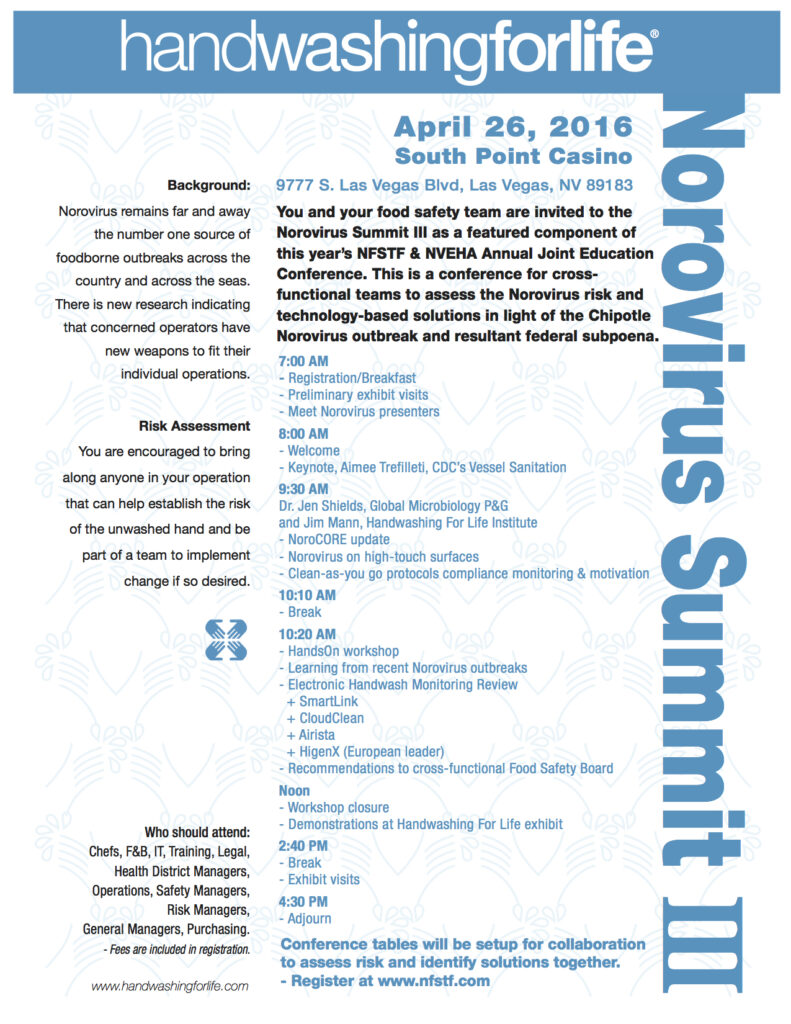Workshop to raise handwashing standards to match menu risks

Recent Norovirus driven legal issues have operators reassessing their standards and reviewing their Outbreak Readiness Plans. Ill employee exclusion is important but its frequent symptom-free profile raises handwashing to the primary intervention.
Handwashing For Life’s research stretches from the watershed event of the early 1990s, the Jack-In-The-Box outbreak, to today’s Chipotle issues. The most consistent shortcoming in those 23 years, including these bookend events, is the lack of data for operators to invest in sustainable solutions.
Data drives a controllable process, reporting variances from standards. Handwashing, the #1contributing factor cited in outbreak investigations and the CDC’s primary recommended intervention for the spread of pathogens, has no standards to track. It’s like an airport without radar.
Thanks to technical advances, handwashing can now be a controllable process, making poor handwashing a choice. This opens the door to potential legal actions with an increasing call from consumers seeking to dine away-from-home at restaurants with quality assurance systems matched up to their menu and process control.
This Norovirus Summit III workshop is designed to collaboratively assess current industry practices and evaluate proposed solutions. Attendance by cross-departmenal teams is encouraged to agree risk and a path of continuous improvement.
There will be four different Electronic Compliance Monitoring (ECM) technologies demonstrated to help operators align their situation and corporate culture with their best choice for reducing risk via enhanced handwashing. This workshop offers a unique opportunity to “kick the tires” and “look under the hood” at this new vehicle to drive handwashing from chaos to control.


